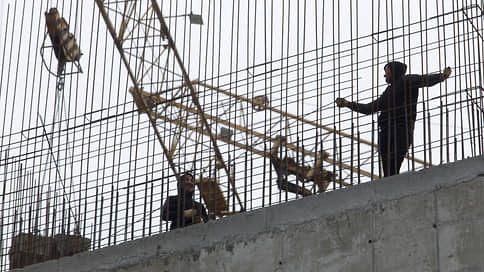Smart home will be Russified – Newspaper Kommersant No. 206 (7407) dated 11/08/2022
[ad_1]

The government is discussing new measures to stimulate demand for Russian electronics, among which, according to Kommersant, is the idea to oblige developers to use domestic Internet of Things (IoT) equipment in the construction of residential and industrial buildings. This will require a register of Russian equipment, as well as changes to the Urban Planning Code. So far, IoT market participants explain, domestic equipment is produced only on Chinese microcircuits. Developers believe that Russian companies are not able to cover the needs of the industry and that restrictive measures are inappropriate.
“Kommersant” got acquainted with the protocol of the meeting held on October 6 with the Minister of Economy Maxim Reshetnikov with the participation of representatives of the Ministry of Industry and Trade and the Ministry of Construction. It follows from the document that developers may be required to use “exclusively domestic specialized equipment” when designing industrial and residential buildings. The Ministry of Industry and Trade was recommended to form a register of equipment and prepare changes to the Urban Planning Code, follows from the document.
According to Kommersant’s interlocutor, close to one of the relevant ministries, we are talking about Russian Internet of Things devices (IoT, for example, fire alarm sensors, intercoms, etc.). The Ministry of Economy confirmed that “the issue is under study”, refraining from further comments. The Ministry of Construction and the Ministry of Industry and Trade did not answer “Kommersant”.
This is not the first attempt by regulators to stimulate the growth of developers’ demand for Russian IoT equipment. In particular, since the beginning of the year, the Ministry of Digital Development, together with a number of departments and developers, has been developing “smart home standards” (see Kommersant of July 4). They are designed to unify the fleet of devices in all homes, as well as introduce requirements aimed at Russian manufacturers. The Ministry of Digital Development estimated the cost of equipping houses with Russian devices at 350 billion rubles. for two years.
According to MTS, the volume of the Russian market for Internet of Things devices “due to the negative macroeconomic situation” will decrease from 148.5 billion rubles. at the end of 2021 to 137 billion rubles. at the end of 2022. Then, according to MTS, the market will begin to recover and will grow by an average of 7% per year, reaching 208.5 billion rubles by 2026: “The main incentives will be initiatives to digitalize production, government projects to introduce digital technologies in certain segments, for example, the transport industry and the urban economy.
There are domestic manufacturers and suppliers of smart devices and technologies for construction in Russia, but limiting the use of imported equipment will not have a positive impact on the construction industry, Vladimir Shchekin, co-owner of the Rodina group, believes. According to him, the Russian market has enough simple IoT equipment, for example, smart utility meters: “But the future belongs to systems that can be used in design and construction, and from this point of view, the Russian market is very small, and IoT small startups.
While Russian manufacturers do not fully cover the needs of developers in the Internet of things, Dmitry Golev, commercial director of Optima Development, confirms: “Of course, investments are needed in the training of qualified personnel and the creation of new industries.” But it is precisely the prohibitive measures, in his opinion, that “at this stage are inappropriate.”
Now Russian companies produce fire and burglar alarms, sensors and other IoT equipment for this segment, clarifies the top manager of one of the Internet of Things equipment manufacturers: “Of course, there will be no domestic microchips, but from the point of view of current legislation, the equipment is considered Russian” . Kommersant’s interlocutor adds that the design and production of IoT equipment based on domestic components will lead to an increase in the cost of final products.
Excessive standardization can become a barrier to entry into the market or lead to a monopoly position of individual players, says another interlocutor in the IoT industry: “Despite the large number of domestic manufacturers, many players use imported component base, so it is important not to regulate the area before the conditions for the development of completely Russian solutions”.
[ad_2]
Source link





